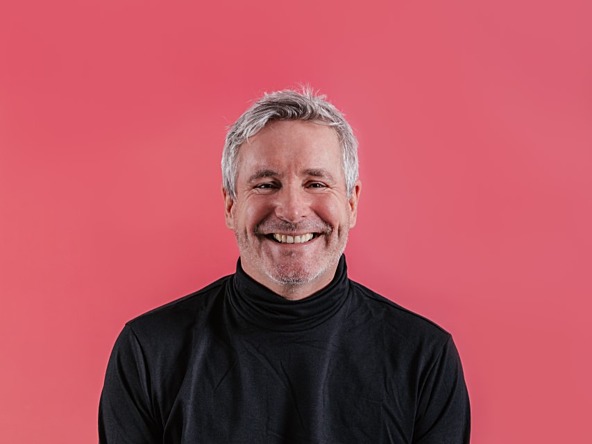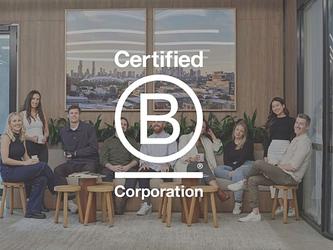Steve Phillips, Zappi: ‘B Corp is a movement we should all get behind’

The idea that businesses should contribute positively to society is not a new one, but a concept that is fast growing around the world. A glut of sustainability, diversity and social initiatives have emerged in recent years, with businesses under increasing pressure to make ethical choices about their business models, supply chains, production and policies.
But how do you separate the wheat from the chaff when it comes to ethical business? B Corp status has long been a useful yardstick to measure a company’s ability to put its money where its mouth is when it comes to being a socially responsible business.
There have been several B Corps springing up in the research sector in recent years, such as BritainThinks, Shift Insight and Space Doctors. Now another firm has been added to the list in the shape of data platform Zappi.
Steve Phillips (pictured), chief executive at Zappi, says that the company has always had an ethical outlook, which made a B Corp status a natural fit. “The thing I liked about the B Corp idea when I heard about it two years ago was that it gives you a framework for covering multiple things,” says Phillips. “It is about balancing people, planet and profit. It talks about how your treat people, not just employees but also clients and suppliers. It talks about your relationship with the planet and what you are doing around net zero and other sustainability issues. It also talks about things you do in your communities.
“It is a structure that allows you to balance all those things without becoming a social enterprise or a not-for-profit. We are highly ambitious as a business, but we feel that can go hand-in-hand with making social good as well.”
The process to become B Corp certified requires meeting targets in five areas: governance, workers, community, environment and customers. Businesses must provide evidence of socially and environmentally responsible practices relating to energy supplies, waste and water use, worker compensation, diversity and corporate transparency.
Phillips has a strong track record on ethical business, currently chair of the Market Research Society’s (MRS’s) sustainability council. But he accepts achieving B Corp status has been challenging, with the process having taken 18 months from the moment of board approval. B Corp certification is carried out by B Lab, and incorporates getting a minimum score of 80 out of 100 on a range of issues connected to governance, workers, community, environment and customers. Zappi scored 91 points this time around, and Phillips hopes the company can improve that further at reaccreditation (which takes place every three years).
Phillips says that the B Corp certification process underlines “what we thought it was right to do”. He adds that it is helpful in attracting the right employees to the company and showcasing its ethical credentials more widely. “We believed ourselves to be a good company anyway, and this was a certification process and a framework to think through what that means,” he explains. “It is a clear expression, particularly for employees, about the type of business we are and who we want to be.
“For prospective employees, we tell them we are a B Corp and explain what it is, and if they are not the type of person who wants to join that type of company, they will back away. We want to grow and are ambitious – we want to do great things and digitise the industry. But we also want to do these social aspects as well – we want to be good people and make a positive impression on society. It is a clear expression to employees of the type of place we are trying to build.”
Does the model fit the research industry? Phillips argues that mid-sized firms, because of the relative lack of complexity in their supply chains, could find the B Corp accreditation process much less tricky than behemothic conglomerates. While some big companies have passed certification – Ben & Jerry’s and Patagonia being two examples – many of those successful are much smaller. “We benefit from being a professional services firm that doesn’t have long, complicated supply chains,” adds Phillips. “It is a simpler process on net zero and B Corp – it is not easy, but it is not as complicated as it is for other industries. There is a nice, natural fit.”
Phillips also argues that the research industry’s outlook makes it ripe for ethical business models. “Our industry is full of smart, compassionate, caring people,” he says. “Researchers care about people – it is in our DNA. We are interested in hearing about people, their opinions, beliefs and desires.”
Zappi works on community outreach in the London borough of Camden in which it is based, and has worked with organisations such as Black Coder to improve diversity in the data and insights industry. Its next step, Phillips says, is looking at pro bono work. With ethical business very much in vogue, he adds that he hopes to see others tread a similar path in future.
“I think it is a movement we should all get behind. Business has a very positive role to play in espousing and being active in doing what it can to make society and the planet a better place for all of us.”

We hope you enjoyed this article.
Research Live is published by MRS.
The Market Research Society (MRS) exists to promote and protect the research sector, showcasing how research delivers impact for businesses and government.
Members of MRS enjoy many benefits including tailoured policy guidance, discounts on training and conferences, and access to member-only content.
For example, there's an archive of winning case studies from over a decade of MRS Awards.
Find out more about the benefits of joining MRS here.














0 Comments